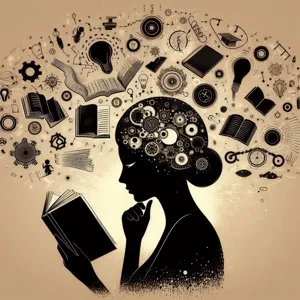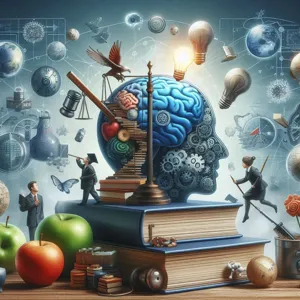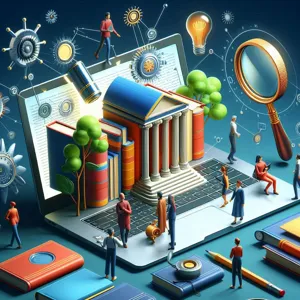Literature has a unique power to delve deep into the intricacies of the human experience, offering insights that resonate across cultures and generations.
The written word serves as a mirror, reflecting our struggles, triumphs, and the myriad emotions that define our existence. In this blog post, we embark on a literary journey through ten must-read books that unravel the complexities of the human condition. From the profound existential musings of classic novels to contemporary works that challenge societal norms, these selections not only captivate readers but also encourage introspection and empathy. Whether you seek to understand love, loss, sacrifice, or identity, these thought-provoking narratives will enrich your perspective and illuminate the shared threads of humanity that bind us all. Join us as we explore these transformative reads that promise to leave an indelible mark on your understanding of what it means to be human.
1. Introduction: The Human Condition Explained
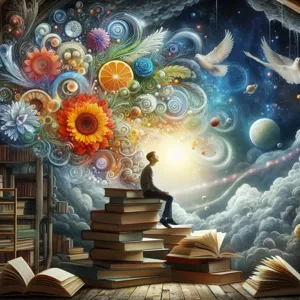
The human condition is a tapestry woven with threads of joy, sorrow, love, despair, ambition, and conflict. It encompasses the intricate experiences that define our existence, exploring our motivations, fears, and dreams. Throughout history, writers, philosophers, and thinkers have endeavored to dissect this complexity, offering insights that resonate across cultures and epochs.
In literature, the human condition serves as a mirror reflecting our innermost struggles and triumphs. It questions the essence of identity, morality, and the pursuit of happiness, inviting readers to delve deeper into not just their own experiences, but also the rich tapestry of humanity as a whole. As we confront universal themes such as loss, redemption, and the search for meaning, we find ourselves connected to others, transcending boundaries of time and space.
This collection of ten must-read books serves as a gateway to understanding the multifaceted nature of what it means to be human. Each narrative, whether a poignant novel or an incisive essay, peels back layers of societal norms and personal dilemmas, urging us to confront our own realities. From the struggles of the individual to the collective journey of society, these works illuminate the paths we tread and the choices we face in our quest for understanding and connection. Join us as we embark on this literary exploration, unraveling the complexities of the human condition and discovering the profound lessons these authors have to share.
2. The Role of Literature in Understanding Humanity
Literature serves as a powerful lens through which we can explore and understand the intricate tapestry of the human condition. It allows us to delve into the depths of human emotions, motivations, and experiences that shape our lives. Through the pages of a well-crafted novel, we encounter characters that mirror our own struggles, aspirations, and complexities. From the tormented souls in Dostoevsky’s works to the resilient spirits in the stories of Toni Morrison, literature opens a window to the vast spectrum of human existence.
At its core, literature fosters empathy, enabling readers to walk in the shoes of others, transcending cultural, social, and temporal boundaries. By immersing ourselves in diverse narratives, we gain insights into the thoughts and feelings of individuals from backgrounds vastly different from our own. This exploration encourages reflection on our own lives, prompting us to question our beliefs, values, and the systems that govern our societies.
Moreover, literature often grapples with universal themes—love, loss, identity, conflict, and redemption—allowing readers to confront the complexities of life in a safe space. These themes resonate across time and geography, reminding us that while our circumstances may differ, the fundamental struggles of being human remain constant. As we engage with these stories, we not only broaden our understanding of humanity but also deepen our connection to it.
In a world increasingly driven by technology and rapid communication, literature remains a vital tool for introspection and comprehension. It invites us to pause, reflect, and appreciate the multifaceted nature of our shared existence. By embracing the role of literature in understanding humanity, we embark on a journey that enriches our lives and enhances our ability to connect with others in a meaningful way. As we explore the must-read books on this list, we’ll uncover how each author uniquely contributes to our understanding of what it means to be human.
3. Criteria for Selection: What Makes a Book Essential?
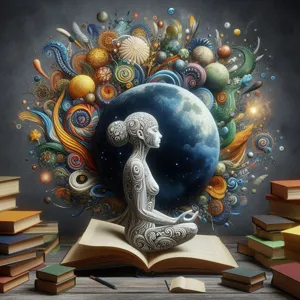
When curating a list of must-read books that delve into the complexities of the human condition, it’s imperative to establish a clear set of criteria for selection. Not every book can claim the title of “essential,” so we seek works that resonate deeply, provoke thought, and reflect the myriad facets of human experience.
First and foremost, the **depth of the narrative** is crucial. The book should offer profound insights into human emotions, relationships, and existential dilemmas. It’s not just about the storyline; it’s about how that story reflects the struggles, triumphs, and intricacies of life itself. Whether through rich character development or evocative prose, the narrative must challenge readers to confront their own beliefs and experiences.
Next, we consider the **cultural and historical significance** of the work. Books that provide a window into different societies, eras, and philosophies enrich our understanding of humanity. They invite readers to appreciate diversity and recognize universal themes that bind us all. This exposure to varied perspectives is essential for fostering empathy and broadening our worldview.
Another key factor is the **timelessness of the themes** explored within the book. Essential reads often tackle fundamental questions about existence, love, suffering, and morality—issues that remain relevant across generations. These themes encourage readers to reflect on their own lives and the world around them, making the book not just a momentary escape, but a lasting companion in their journey of self-discovery.
Lastly, we must acknowledge the **impact of the author’s voice**. A distinctive writing style that captivates and engages the reader is vital. The author’s ability to weave intricate narratives that resonate emotionally can elevate a book from mere storytelling to a transformative experience.
In summary, an essential book about the human condition should challenge, enlighten, and inspire. It must delve deep into the complexities of what it means to be human, offering insights that linger long after the final page is turned. Through these criteria, we can better appreciate the literary gems that truly unravel the intricacies of our shared existence.
4. “Crime and Punishment” by Fyodor Dostoevsky
“Crime and Punishment” by Fyodor Dostoevsky is a profound exploration of morality, guilt, and redemption that delves deep into the psyche of its protagonist, Raskolnikov. Set against the backdrop of 19th-century St. Petersburg, the novel follows the tumultuous journey of a former student who grapples with his own philosophical justifications for committing a heinous crime. Dostoevsky masterfully portrays Raskolnikov’s internal struggle as he oscillates between feelings of superiority and the crushing weight of his conscience, offering readers a raw and intimate look at the complexities of human emotions.
Through compelling character interactions and rich psychological insights, the narrative raises essential questions about the nature of good and evil, the consequences of one’s actions, and the possibility of atonement. Raskolnikov’s encounters with other characters, such as the compassionate Sonia and the relentless investigator Porfiry, further illuminate the theme of redemption and the search for meaning in a chaotic world.
As you journey through the pages of “Crime and Punishment,” you are invited to reflect on the moral dilemmas that define the human experience. Dostoevsky’s haunting prose and intricate character development make this novel not only a cornerstone of literary canon but also an essential read for anyone seeking to understand the depths of the human condition. Whether you are grappling with your own ethical choices or simply want to appreciate the intricacies of human psychology, this timeless classic remains a compelling exploration of the dark corners of the human soul.
5. “To Kill a Mockingbird” by Harper Lee
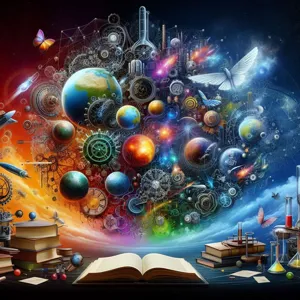
**5. “To Kill a Mockingbird” by Harper Lee**
Harper Lee’s “To Kill a Mockingbird” remains a timeless classic that fearlessly delves into the complexities of human morality, prejudice, and the loss of innocence. Set in the racially charged atmosphere of the American South during the 1930s, the novel is narrated through the innocent eyes of Scout Finch, a young girl whose perception of the world is profoundly shaped by her father, Atticus Finch, a principled lawyer defending a black man unjustly accused of raping a white woman.
At its core, the book explores the themes of empathy and understanding, urging readers to step into the shoes of others—a lesson as relevant today as it was when it was first published in 1960. Through Scout’s experiences, we witness the stark realities of racial inequality and moral complexity, challenged and highlighted by the unwavering integrity of Atticus. His steadfast commitment to justice, despite societal pressures, serves as a beacon of hope and moral fortitude.
Lee’s vivid character portrayals create a rich tapestry of small-town life, from the enigmatic Boo Radley to the prejudiced townsfolk, inviting readers to reflect on their own biases and the societal constructs that shape human behavior. The narrative oscillates between childhood innocence and the harsh truths of adulthood, making it a powerful exploration of how prejudice can distort human relationships.
As you journey through the pages of “To Kill a Mockingbird,” you are not just reliving a historical moment; you are engaging in a profound dialogue about ethics, compassion, and the complexities that define the human experience. This novel is not merely a story; it is an invitation to examine our humanity and strive for a more equitable world. Its enduring relevance solidifies its place among the must-reads for anyone seeking to understand the intricacies of the human condition.
6. “The Catcher in the Rye” by J.D. Salinger
**6. “The Catcher in the Rye” by J.D. Salinger**
J.D. Salinger’s “The Catcher in the Rye” remains a cornerstone of American literature, a poignant exploration of adolescent angst and the struggle for identity in a world that often feels disingenuous. Through the eyes of Holden Caulfield, a disenchanted teenager navigating the turbulent waters of adulthood, Salinger offers readers an intimate glimpse into the complexities of the human psyche.
Set against the backdrop of post-war New York City, Holden’s journey is both a physical and existential one. As he wanders through the city, grappling with the pain of loss, alienation, and the challenges of growing up, readers are drawn into his internal monologue, rich with cynicism and yearning. Salinger masterfully captures the voice of a generation, encapsulating the feelings of confusion and disillusionment that resonate with so many.
At its core, “The Catcher in the Rye” is a meditation on innocence and the desire to protect it. Holden’s dream of becoming the “catcher in the rye,” a guardian who saves children from falling into the harsh realities of adulthood, serves as a powerful metaphor for his own struggles with vulnerability and connection. The novel’s themes of isolation and the quest for authenticity are timeless, inviting readers to reflect on their own experiences with love, loss, and the often-painful transition into maturity.
Salinger’s use of colloquial language and stream-of-consciousness narrative style immerses readers in Holden’s turbulent thoughts, making his journey feel immediate and relatable. This book is not just a story; it’s an invitation to confront the raw emotions that define our human experience. As you delve into Holden’s world, prepare to grapple with the complexities of your own life, making “The Catcher in the Rye” an essential addition to the literary canon that unravels the intricate tapestry of the human condition.
7. “1984” by George Orwell
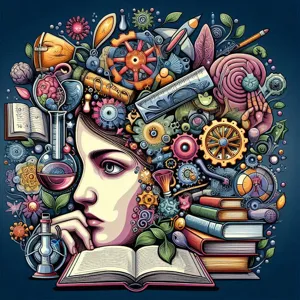
“1984” by George Orwell is a haunting exploration of a dystopian future where totalitarianism reigns supreme and individual freedoms are systematically eradicated. Published in 1949, this seminal work dives deep into the complexities of power, surveillance, and the malleability of truth—a narrative that continues to resonate in today’s world.
At the heart of “1984” is the life of Winston Smith, a man trapped in a society governed by the oppressive regime of the Party, led by the enigmatic Big Brother. Orwell masterfully develops a chilling atmosphere where privacy is nonexistent, and every action is monitored by the omnipresent telescreens. The chilling indoctrination of citizens into accepting a distorted version of reality serves as a stark warning about the potential dangers of unchecked governmental power and propaganda.
Through Winston’s rebellion against the Party’s oppressive ideologies, readers are invited to ponder profound questions about identity, freedom, and the nature of truth. The novel’s concepts, such as “Newspeak” and “doublethink,” highlight the manipulation of language and thought, illustrating how the control of information can lead to the erosion of personal autonomy.
“1984” is not just a story of one man’s struggle against a totalitarian regime; it is a profound commentary on the human condition, examining our innate desire for freedom in the face of oppression. As readers traverse Winston’s journey, they are compelled to reflect on their own realities and the societal structures that govern their lives. This timeless classic remains a must-read for anyone seeking to understand the depths of human nature and the fragility of truth in an increasingly complex world.
8. “The Great Gatsby” by F. Scott Fitzgerald
**8. “The Great Gatsby” by F. Scott Fitzgerald**
F. Scott Fitzgerald’s “The Great Gatsby” is a timeless exploration of the American Dream and the intricate web of human desires, aspirations, and disillusionment. Set against the opulent backdrop of the Roaring Twenties, the novel follows the enigmatic Jay Gatsby, a self-made millionaire whose obsession with the beautiful Daisy Buchanan epitomizes the pursuit of unattainable love and success. Fitzgerald’s lyrical prose is rich with symbolism, from the green light at the end of Daisy’s dock to the haunting eyes of Dr. T.J. Eckleburg, inviting readers to delve into the deeper meanings behind the glittering facade of wealth and privilege.
At its core, “The Great Gatsby” is a poignant commentary on the moral decay hidden behind the glamour of the Jazz Age. Through the eyes of narrator Nick Carraway, readers are taken on a journey through the excesses of high society, where parties overflow with champagne and laughter, yet underneath lies a pervasive sense of emptiness and longing. The characters, each with their own flaws and dreams, illustrate the complexities of human nature—ambition, love, betrayal, and the relentless quest for identity.
Fitzgerald masterfully captures the essence of a society grappling with its values, making “The Great Gatsby” not just a tale of romance and tragedy, but a profound reflection on the human condition itself. Its themes of hope and despair are as relevant today as they were nearly a century ago, prompting readers to question what it truly means to achieve happiness and fulfillment. For anyone seeking to understand the intricacies of human emotions against the backdrop of societal expectations, this novel is an essential read that resonates through the ages.
9. “The Bell Jar” by Sylvia Plath
**9. “The Bell Jar” by Sylvia Plath**
Sylvia Plath’s semi-autobiographical novel, “The Bell Jar,” is a haunting exploration of mental illness and identity wrapped in the poignant narrative of a young woman’s descent into depression. Set in the 1950s, the story follows Esther Greenwood, a talented and ambitious college student who seems to have the world at her feet but feels increasingly disconnected from the life she is expected to lead.
Plath masterfully captures the suffocating pressure of societal expectations and the alienation that can accompany the pursuit of personal ambitions. Through Esther’s eyes, readers experience the stifling atmosphere of conformity, the constant struggle for self-identity, and the profound sense of isolation that can emerge even in the midst of vibrant urban life. The titular “bell jar” serves as a powerful metaphor for the feeling of being trapped — both within one’s mind and by external societal constraints.
As Esther grapples with her mental health, Plath’s lyrical prose offers a raw, unfiltered look at the complexities of depression, conveying the sense of entrapment and desperation that can accompany it. The novel oscillates between moments of sharp wit and deep sadness, reflecting the duality of the human experience. It invites readers to ponder the fragility of sanity and the often-unspoken struggles that many endure in silence.
“The Bell Jar” remains a timeless classic, resonating with anyone who has ever felt out of sync with the world around them. Its exploration of identity, mental health, and the quest for authenticity continues to inspire deep reflection and empathy, making it an essential read for anyone seeking to understand the complexities of the human condition.
10. “Brave New World” by Aldous Huxley
**10. “Brave New World” by Aldous Huxley**
In “Brave New World,” Aldous Huxley crafts a dystopian vision that explores the intricate balance between technological advancement and the essence of humanity. Set in a future where society is meticulously engineered for pleasure and stability, Huxley introduces readers to a world devoid of individualism, where people are conditioned from birth to conform and consume without question.
Central to this narrative is the unsettling juxtaposition of happiness and freedom. The citizens of this brave new world live in a state of superficial contentment, lulled by the use of a drug called soma, which provides an escape from any discomfort or dissatisfaction. However, as the story unfolds, Huxley presents a profound critique of a society that sacrifices genuine emotional depth and authentic relationships for the sake of convenience and artificial happiness.
The protagonist, Bernard Marx, grapples with his discontent in a world that celebrates uniformity over individuality. His journey prompts readers to reflect on their own lives: Are we trading our freedom for comfort? What does it mean to be truly human in an era dominated by technology and consumerism? Huxley’s narrative is a powerful reminder of the dangers of complacency and the importance of embracing the complexities of human emotions.
“Brave New World” remains a timeless exploration of the human condition, urging us to consider the value of our individual experiences and the consequences of a society that prioritizes stability over the messiness of real life. Huxley’s masterful storytelling and thought-provoking themes make this novel not only a compelling read but also a crucial commentary on the trajectory of our own world. For anyone seeking to understand the intricacies of humanity, this book is an essential addition to your reading list.
11. “Siddhartha” by Hermann Hesse
“Siddhartha” by Hermann Hesse is a profound exploration of the spiritual journey of self-discovery and enlightenment. Set against the backdrop of ancient India, the novel follows the life of Siddhartha, a young Brahmin who embarks on a quest to find deeper meaning beyond the comforts and rituals of his privileged upbringing.
Hesse masterfully weaves together themes of duality, the nature of existence, and the quest for inner peace. As Siddhartha encounters various teachers—from ascetic hermits to worldly businessmen—readers are invited to reflect on the dichotomy between spiritual fulfillment and material success. Each phase of Siddhartha’s journey serves as a mirror, reflecting the struggles and triumphs of the human experience.
As he navigates the complexities of love, loss, and the relentless search for truth, Siddhartha learns that enlightenment cannot be taught; it must be experienced. Hesse’s lyrical prose captures the essence of this realization, offering profound insights into the interconnectedness of all beings.
“Siddhartha” not only provides a rich narrative but also serves as a philosophical guide that encourages readers to contemplate their own paths. It’s a timeless reminder that the journey toward understanding oneself is as important as the destination. This book will resonate with anyone who has ever questioned their place in the world or sought a deeper connection to life itself. In a society often preoccupied with external achievements, Hesse’s work is a gentle nudge to look inward, making it a must-read for anyone wishing to unravel the complexities of the human condition.
12. “The Road” by Cormac McCarthy
**12. “The Road” by Cormac McCarthy**
In “The Road,” Cormac McCarthy masterfully weaves a tale of survival, love, and the enduring spirit of humanity against a backdrop of desolation. Set in a post-apocalyptic world, the narrative follows a father and his young son as they navigate through a landscape stripped of life, where the remnants of civilization lie in ruins. McCarthy’s stark prose immerses readers in a hauntingly beautiful yet bleak environment, filled with ash and silence, where the sun rarely breaks through the clouds.
The relationship between the father and son serves as the emotional core of the novel. Their bond, forged in the crucible of hardship, becomes a beacon of hope amid the despair that surrounds them. The father’s relentless determination to protect his son from the horrors of their world—mutants, starvation, and the cold indifference of nature—highlights the lengths to which love will go to ensure the survival of the next generation.
McCarthy’s exploration of the human condition is profound and unsettling, as he delves into themes of morality, sacrifice, and the instinct to persevere against all odds. The poignant moments of tenderness shared between the duo contrast sharply with the violence and brutality they encounter, underscoring the fragility of hope in a hopeless world.
“The Road” is not just a survival story; it’s a meditation on what it means to be human when stripped of all comforts and certainties. Through evocative imagery and sparse dialogue, McCarthy invites readers to ponder their own values and the essence of humanity itself. This gripping narrative ultimately leaves us with the haunting question: in a world devoid of light, what does it mean to carry the flame of hope? A must-read for anyone seeking to understand the complexities of love, loss, and the indomitable will to endure, “The Road” is a poignant reminder of the resilience of the human spirit, even in the darkest of times.
13. “Man’s Search for Meaning” by Viktor E. Frankl
**”Man’s Search for Meaning” by Viktor E. Frankl**
In “Man’s Search for Meaning,” Viktor E. Frankl presents a profound exploration of the human spirit in the face of unimaginable suffering. Drawing from his experiences as a Holocaust survivor and a psychiatrist, Frankl delves into the depths of despair encountered in Nazi concentration camps, yet he emerges with a powerful message about the resilience of the human will.
The book is divided into two parts: the first recounts Frankl’s harrowing experiences in the camps, where he witnessed not only the brutality of the human condition but also the incredible capacity for hope and meaning even in the darkest of circumstances. Through poignant anecdotes, he illustrates how some individuals were able to find purpose amid suffering, often clinging to memories of loved ones, dreams of a future, or the simple act of helping fellow prisoners.
In the second part, Frankl introduces his psychotherapeutic approach known as logotherapy, which posits that the primary drive in humans is not the pursuit of pleasure (as Freud suggested) or power (as Adler argued) but rather the search for meaning. He asserts that life has meaning under all circumstances, even the most miserable ones, and that finding a purpose can significantly enhance mental well-being.
“Man’s Search for Meaning” transcends the boundaries of genre, serving not only as a memoir but also as a philosophical treatise that invites readers to reflect on their own lives. Frankl’s insights resonate with anyone grappling with existential questions, making this book a transformative read. In a world often marred by confusion and despair, Frankl’s call to seek meaning amidst chaos stands as a beacon of hope, reminding us that our struggles can forge a deeper understanding of ourselves and the world around us. Whether you’re facing personal challenges or simply seeking to understand the human experience, Frankl’s work is a must-read that encourages introspection, resilience, and ultimately, a more profound appreciation for life itself.
14. Conclusion: The Impact of These Books on Our Understanding of Life
In conclusion, the books we’ve explored in this list serve as profound windows into the intricacies of the human condition, offering insights that resonate across cultures and eras. Each author, with their unique voice and perspective, dives deep into the labyrinth of human emotions, relationships, and existential questions that have defined our existence since time immemorial. Through their narratives, we find reflections of ourselves—our struggles, triumphs, fears, and aspirations.
These literary works do more than just tell stories; they challenge us to confront uncomfortable truths and expand our understanding of life. They prompt introspection, encouraging readers to examine their own beliefs and experiences in light of the themes presented. Whether it’s the exploration of love and loss in *The Great Gatsby*, the grappling with identity in *Invisible Man*, or the search for meaning in *Man’s Search for Meaning*, each book invites us to connect with the shared human experience.
Moreover, the impact of these texts extends beyond individual readers, influencing societal narratives and fostering empathy. They act as catalysts for discussion, pushing us to engage with complex social issues and moral dilemmas. In a world often rife with division, these stories unite us in our shared humanity, reminding us that our struggles and joys are intertwined.
As you close the pages on these must-read books, carry with you the lessons learned and the emotions stirred. Let their insights guide you in navigating your own journey through life, enriching your understanding of not only yourself but also the people around you. Ultimately, the complexities of the human condition are not just meant to be unraveled; they are to be embraced as part of the beautiful tapestry of existence that connects us all.
15. Suggested Further Reading: Expanding Your Exploration of Humanity
As we conclude our journey through the ten essential books that illuminate the complexities of the human condition, it’s only fitting to suggest further reading that can deepen your understanding and broaden your perspective. The exploration of humanity is an ongoing endeavor, and literature has a unique ability to resonate with our experiences, provoke thought, and foster empathy.
Consider delving into *Man’s Search for Meaning* by Viktor E. Frankl, a profound memoir that captures the essence of resilience and the search for purpose amid unimaginable suffering. Frankl’s insights into the human spirit can serve as a powerful companion to the narratives we’ve explored.
Another remarkable work is *The Road* by Cormac McCarthy, which paints a haunting yet beautiful picture of a father-son relationship in a post-apocalyptic world. This novel not only challenges our understanding of survival but also provokes reflections on love, sacrifice, and the essence of hope.
For those intrigued by the psychological intricacies of human behavior, *Thinking, Fast and Slow* by Daniel Kahneman offers a compelling examination of the dual processes that drive our thoughts and actions. Understanding how we think can provide invaluable insights into our decisions and interactions with others.
Lastly, *The Empathic Civilization* by Jeremy Rifkin invites readers to consider the role of empathy in shaping our societies and futures. In an increasingly interconnected world, this exploration of our capacity for compassion and understanding is particularly relevant.
These selections, along with the ten must-reads discussed, create a rich tapestry of literature that invites you to reflect, question, and engage with the myriad facets of what it means to be human. So, grab a cup of tea, find a cozy nook, and allow yourself the gift of exploration through these remarkable works. Happy reading!
In conclusion, the ten must-read books highlighted in this post serve as profound explorations of the human condition, each offering unique insights into our emotions, motivations, and the intricate tapestry of life experiences. From classic literature that resonates across generations to contemporary narratives that challenge our perceptions, these works invite readers to reflect on their own lives and the shared struggles of humanity. As you embark on these literary journeys, we encourage you to embrace the lessons within their pages, fostering empathy and understanding in a world that often feels divided. Whether you’re seeking solace, inspiration, or a deeper connection to others, these books are sure to enrich your perspective and illuminate the complexities we all navigate. Happy reading, and may these stories resonate with you long after you turn the final page!

